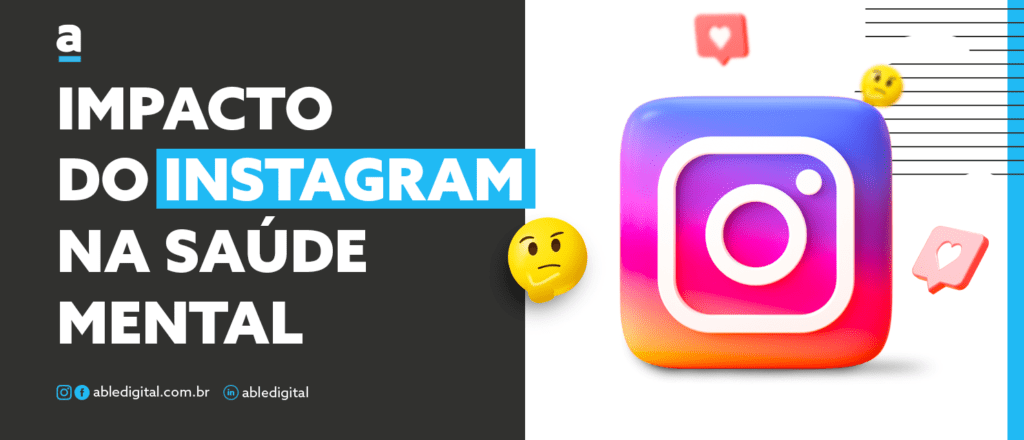Instagram and mental health: what is Facebook doing?
Posted by: ,

With more than a billion users, Instagram is one of the most used social networks in the world and also the most harmful to mental health, according to a study published in 2019 by the Royal Society For Public Health.
At the time of the survey, the Royal Society, which is a public health entity in the United Kingdom, interviewed 1,479 people, aged between 14 and 24, and found that 90% of these young people used social networks, with Instagram being the platform that generated the most well-being and the feeling of belonging to the community. On the other hand, this social network also generated negative feelings, such as anxiety and loneliness.
The platform, which in the beginning focused on sharing photos as the main form of communication, now allows users to express themselves through other formats, such as videos and stories.
This excessive exposure brings consequences such as depression and dissatisfaction with the body, recurrent factors that turned Instagram, previously considered just a hobby, into a villain for the psychological aspects of its users.
The other side of the coin
While it's important to know where social media can be harmful, it's also important to recognize the positive impacts these platforms can have on their users.
In the same survey, the Royal Society identified some points that can favor the experience of young people inside and outside the app, such as the possibility of expressing themselves and building an identity, since Instagram allows users to share their opinions with other people and , thus, create relationships.
Also according to the report, despite cyberbullying, there is visible emotional support, especially in situations where people share unpleasant experiences and find help and comfort within the social network.
In a study, Facebook admits negative influence of Instagram
An internal survey conducted by Facebook, the owner of Instagram, revealed how teenagers' mental health is negatively impacted by the social network.
According to the survey, 32% of girls under 18 said they felt bad about their bodies and that Instagram made this feeling worse. The document, obtained exclusively by the Wall Street Journal, reveals that comparisons can change the way young women see and describe themselves.
The newspaper highlighted a 2019 survey, which concluded that a serious body image problem was caused by the app for a third of teenage girls.
Weeks after the American newspaper's report, Facebook announced the suspension of the creation of the “kids” version of Instagram, aimed at children under 13, the minimum age to use the app today.
What is Instagram doing to combat these issues
One of the company's first measures was the end of likes on Instagram. Among the reasons are issues related to the users' mental health, since hiding the likes makes it difficult to compare profiles and can help to reduce the obsession with approving success related to the number of likes.
Another measure implemented was a function that not all users are aware of is helping those looking for terms such as anxiety or depression. When a person searches for these words, the platform automatically displays a message warning that the publications are likely to present strong images and offers the options to get support, show publication or cancel.
If the user chooses to receive support, the platform offers three possibilities. The first is contacting a friend, the second is talking to a support volunteer from the Life Enhancement Center and the third function is Instagram tips on how to get help.
The path to open dialogue
Issues related to mental health gained even greater focus with the emergence of the internet and social networks, which, although they can affect psychological aspects of users, can also be a source of information and a means of obtaining help.
Therefore, it is essential that social networks, and not just Instagram, continue to update to enable healthy ways of browsing for their users, making the digital space a more pleasant and less hostile place.

